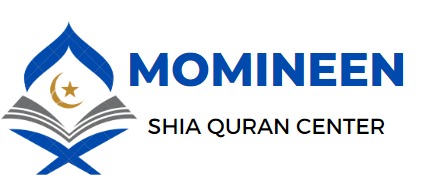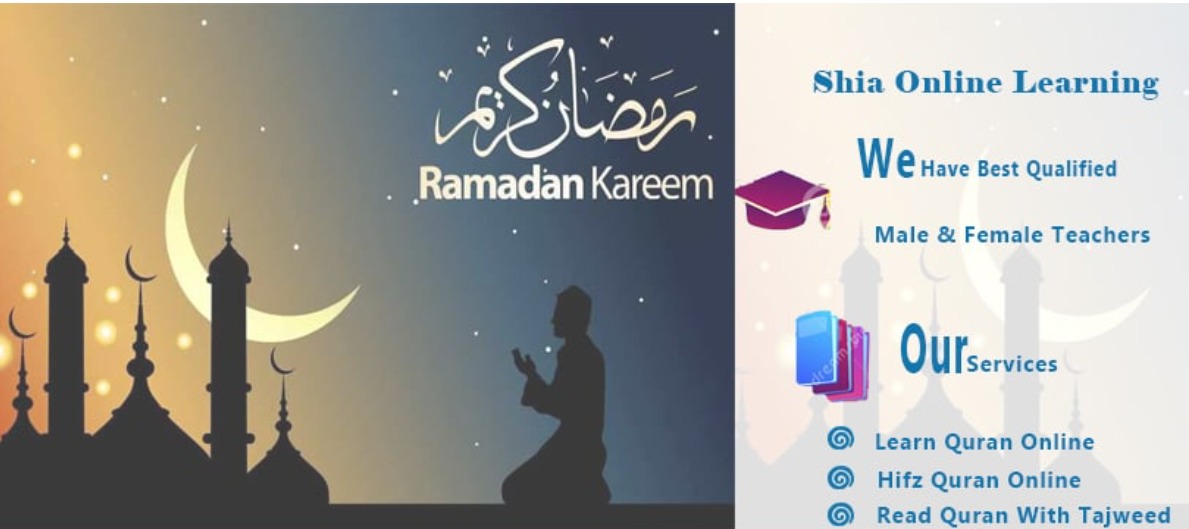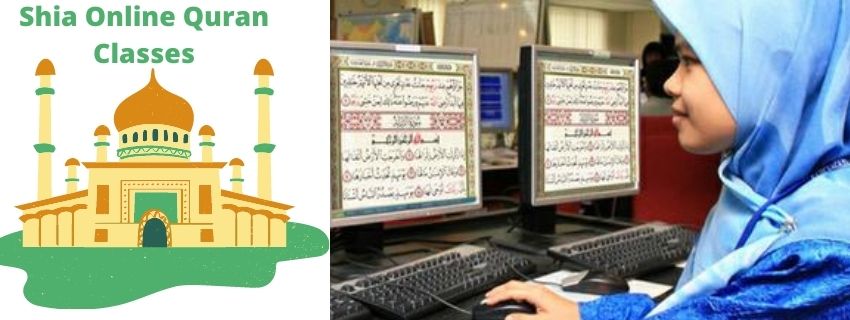The emergence of the Online Shia Quran Academy has revolutionised the way Shia Muslims engage with their faith, offering a new avenue for religious education that transcends geographical boundaries. This article delves into the intricacies of the online learning experience provided by such academies, examining the unique approach they take towards Islamic teaching, the challenges faced in the digital realm, and the role of tutors in preserving doctrinal integrity. We also explore how these institutions are evolving through community feedback and continuous improvement to meet the spiritual and educational needs of their students.
Key Takeaways
- The Online Shia Quran Academy integrates core Shia Islamic principles with innovative digital learning methods to create an accessible educational platform.
- Interactive technology and community-building efforts are central to the online learning experience, fostering student engagement and a sense of belonging.
- Online Shia education must navigate technological challenges and strive to maintain a spiritual connection in a virtual setting while catering to diverse learners.
- Qualified tutors and scholars are crucial for providing personalised mentorship and ensuring the upholding of Shia doctrinal integrity within the online academy.
- Continuous improvement driven by community feedback is shaping the evolution of Online Shia Quran Academies, enhancing their effectiveness and reach.
Understanding the Shia Quran Academy Approach
The Core Principles of Shia Islamic Teaching
The Shia Quran Academy approach is deeply rooted in the rich traditions of Shia Islam, which emphasizes the importance of knowledge, justice, and the role of the Imams in guiding the faithful. The pursuit of knowledge is considered an act of worship, and this principle is central to the educational philosophy of the academy.
- Recognition of the Twelve Imams as rightful successors of the Prophet Muhammad
- Emphasis on the use of reason and intellect in understanding religious texts
- The importance of social justice and the responsibility of individuals to contribute to the welfare of society
The curriculum is designed to not only impart religious knowledge but also to instill a sense of responsibility and ethical conduct in students, reflecting the Shia belief in the practical application of faith in daily life.
Adapting Traditional Learning to the Digital Space
The transition from traditional classroom settings to online platforms has been a significant shift for Shia Quran academies. Embracing technology has enabled these institutions to reach a wider audience, while preserving the essence of Shia teachings. The adaptation process involves several key steps:
- Identifying the core components of face-to-face learning that can be effectively translated online.
- Selecting appropriate digital tools that facilitate interactive learning and maintain the sanctity of the teachings.
- Training educators to deliver lessons in an engaging and effective manner through new mediums.
The digital space offers unique opportunities for innovation in teaching methods, allowing for a more personalized and flexible learning experience.
However, this shift also presents challenges, such as ensuring that the digital divide does not prevent access to education. Academies have responded by offering various formats and levels of courses, catering to different technological proficiencies and learning preferences.
Curriculum and Scholarly Resources
The curriculum at the Shia Quran Academy is meticulously designed to encompass a wide range of Islamic studies, ensuring that students receive a comprehensive education. Courses are structured to progress from basic to advanced levels, allowing learners to build upon their knowledge systematically.
- Introduction to Quranic Arabic
- Tafsir (Quranic Exegesis)
- Fiqh (Islamic Jurisprudence)
- Islamic History
- Aqaid (Beliefs)
- Akhlaq (Ethics)
The selection of scholarly resources is critical to the success of the online Shia Quran Academy. These resources include classical texts, contemporary works, and multimedia content, all curated to support the diverse learning styles of students.
The Academy also emphasizes the importance of scholarly research and encourages students to engage with various Islamic disciplines. This engagement is facilitated through access to online libraries and databases, which contain a wealth of knowledge for both students and educators.
The Online Learning Experience
Interactive Platforms and Technology
The advent of interactive platforms has revolutionized the way Shia Quranic education is delivered online. These platforms enable real-time collaboration and learning, making the experience more engaging for students. The use of technology ranges from simple video conferencing tools to advanced learning management systems that track progress and facilitate assignments.
- Video conferencing for live lectures and discussions
- Interactive whiteboards for real-time annotation
- Quizzes and games for reinforcing learning
- Forums and chat rooms for community interaction
The seamless integration of these technologies ensures that students are not just passive recipients of information but active participants in their learning journey. This dynamic approach helps in retaining attention and improving comprehension.
The table below provides an overview of the common features found in these platforms and their benefits:
| Feature | Benefit |
| Live Video Sessions | Enhances real-time interaction |
| Recorded Lectures | Allows for flexible learning schedules |
| Interactive Quizzes | Aids in immediate assessment |
| Discussion Boards | Fosters community engagement |
While these tools are powerful, they are only as effective as the strategy behind their use. It is crucial for online Shia Quran academies to not only adopt the latest technology but also to ensure that it aligns with pedagogical goals and enhances the overall educational experience.
Student Engagement and Community Building
In the realm of online Shia education, student engagement and community building are pivotal for creating a vibrant learning environment. The transition from traditional classroom settings to virtual platforms necessitates innovative approaches to foster interaction and a sense of belonging among students.
- Encouraging active participation through discussion forums and live Q&A sessions.
- Organizing virtual study groups to facilitate peer-to-peer learning.
- Hosting online events and lectures to strengthen communal ties.
The success of an online Shia Quran Academy hinges on its ability to cultivate a supportive and interactive community that mirrors the closeness found in physical educational spaces.
Regular virtual meetups and collaborative projects are also instrumental in building a cohesive online community. These initiatives not only enhance the learning experience but also ensure that students remain motivated and connected to their faith journey, despite the lack of physical proximity.
Assessing Progress and Providing Feedback
In the realm of online Shia Quranic education, assessing student progress and providing feedback is a critical component that ensures learners are on the right track. The process is multifaceted, involving various metrics and tools to gauge understanding and retention of the material.
- Quizzes and Assignments: Regular assessments help in monitoring comprehension.
- Oral Recitations: Students’ pronunciation and memorization are evaluated through live sessions.
- Participation: Active involvement in discussions and activities is encouraged and noted.
The feedback mechanism is designed to be constructive, aiming to motivate students and foster a deeper connection with the Quranic teachings. It is not just about correcting mistakes, but also about celebrating achievements and guiding students through their learning journey.
The table below illustrates a simplified feedback model used by the academy:
This structured approach allows tutors to provide personalized feedback, which is essential for students to feel supported and understood in their educational endeavors.
Challenges and Solutions in Online Shia Education
| Aspect | Method of Assessment | Frequency |
| Understanding of Concepts | Quizzes | Weekly |
| Memorization | Oral Recitations | Bi-weekly |
| Participation | Activity Logs | Ongoing |
Overcoming Technological Barriers
In the realm of online Shia education, technological barriers can pose significant challenges to both students and educators. Ensuring equitable access to the necessary tools and platforms is crucial for the success of the online learning experience. To address this, many Shia Quran Academies have implemented strategies to mitigate these issues.
- Provision of technical support and troubleshooting guides.
- Offering flexible learning schedules to accommodate different time zones and personal circumstances.
- Partnering with organizations to provide discounted or free access to hardware and software for underprivileged students.
It is essential for online academies to continuously evaluate and upgrade their technological infrastructure to meet the evolving needs of their students.
By taking these steps, Shia Quran Academies are working towards creating a more inclusive and accessible learning environment, where the focus remains on the spiritual and educational growth of the students.
Maintaining Spiritual Connection in a Virtual Environment
In the realm of online Shia education, maintaining a spiritual connection is as crucial as the dissemination of knowledge. The lack of physical presence in a shared sacred space poses unique challenges to fostering spirituality and a sense of community. To address this, academies have adopted various strategies:
- Encouraging regular virtual meet-ups for prayer and discussion
- Organizing online events to observe significant Islamic dates
- Providing platforms for students to share personal reflections and experiences
The essence of spiritual education lies not only in the acquisition of knowledge but also in the cultivation of a supportive and connected community, even when miles apart.
These efforts aim to replicate the communal and spiritual atmosphere found in traditional settings. The success of these initiatives is often reflected in the students’ ability to integrate the teachings into their daily lives, thereby keeping the essence of their faith vibrant and accessible, regardless of the physical distances.
Addressing Diverse Learning Needs
Online Shia Quran Academies are tasked with the challenge of catering to a wide array of learning preferences and needs. Diversity in educational backgrounds and learning styles necessitates a flexible approach to instruction.
- Personalized learning plans
- Multimodal content delivery
- Regular assessments to tailor learning experiences
In response to this, academies are increasingly leveraging technology to create adaptive learning environments that can be customized for each student. This ensures that every learner, regardless of their starting point, can engage with the material in a way that best suits their individual needs.
By employing a range of educational tools and methodologies, online Shia academies are able to accommodate the unique learning journeys of their students. This not only enhances the educational experience but also fosters a more inclusive and supportive online community.
The Role of Tutors and Scholars
Qualifications and Training of Online Shia Tutors
The efficacy of an online Shia Quran Academy largely hinges on the qualifications and training of its tutors. Tutors are typically required to have a deep understanding of Shia theology and jurisprudence, often evidenced by advanced degrees from recognized Islamic seminaries or universities.
In addition to academic credentials, online Shia tutors undergo rigorous training programs designed to equip them with the necessary skills to teach in a digital environment. This includes:
- Mastery of Quranic recitation and interpretation
- Effective communication and engagement strategies
- Proficiency in using online teaching platforms and tools
The goal is to ensure that each tutor can not only convey the complexities of Shia Islam but also foster an interactive and supportive online learning community.
Continuous professional development is also a cornerstone of the tutor’s journey, with regular workshops and seminars to keep abreast of the latest educational methodologies and technological advancements.
One-on-One Mentorship and Guidance
The personalized attention provided by online Shia Quran academies through one-on-one mentorship is a cornerstone of the educational experience. Tutors tailor their guidance to meet the individual spiritual and academic needs of each student, ensuring a supportive learning journey.
- Tutors assess students’ understanding and progress, offering targeted advice.
- Students receive individualized study plans that align with their pace and level of comprehension.
- Mentorship extends beyond academic instruction, encompassing ethical and spiritual guidance.
The intimate mentor-student relationship fosters a deep connection to the teachings of the Quran, encouraging personal growth and religious commitment. This bespoke approach is particularly beneficial in addressing the unique challenges and questions that students may encounter in their studies.
Upholding Doctrinal Integrity
In the realm of online Shia education, upholding doctrinal integrity is paramount. Tutors and scholars bear the responsibility of ensuring that the teachings conveyed through digital platforms are in strict adherence to Shia Islamic principles and jurisprudence. This fidelity to doctrine is not only crucial for the preservation of religious identity but also for fostering a sense of trust and authenticity among students.
- Ensuring accurate representation of Shia beliefs
- Continual vetting of educational materials
- Regular updates to course content in line with scholarly consensus
The integrity of the faith is safeguarded through a meticulous process of content curation and scholarly oversight. This process involves the collaboration of experienced educators and religious authorities to maintain the purity of the teachings.
The challenge of maintaining doctrinal integrity online is met with rigorous checks and balances. Scholars are tasked with the regular review of course materials, and any updates to the curriculum are made with careful consideration of theological accuracy and relevance.
Community Feedback and Continuous Improvement
Gathering Insights from Students and Parents
The feedback from students and parents is invaluable in shaping the future of the Online Shia Quran Academy. Surveys and interactive sessions are regularly conducted to capture the experiences and suggestions of the academy’s community. This direct input helps in understanding the effectiveness of the teaching methods and the overall satisfaction with the program.
- Satisfaction with course content
- Ease of use of the online platform
- Quality of tutor interaction
- Flexibility of class schedules
By systematically analyzing feedback, the academy identifies areas of strength and opportunities for improvement. This ongoing dialogue ensures that the educational offerings remain relevant and responsive to the needs of the students and their families.
The insights gathered are not just anecdotal; they are often quantified to track trends and measure progress over time. This data-driven approach allows for informed decision-making and strategic planning to enhance the learning experience.
Implementing Changes Based on Feedback
The Shia Quran Academy demonstrates a commitment to excellence by actively incorporating student and parent feedback into its educational model. This iterative process ensures that the academy remains responsive to the needs of its community and upholds the highest standards of Islamic education.
- Reviewing feedback on a regular basis
- Prioritizing areas for improvement
- Developing action plans for curriculum and platform enhancements
- Engaging with scholars to refine teaching methods
The academy’s dedication to continuous improvement is evident in the way it embraces constructive criticism, transforming it into actionable insights that benefit both the learners and the institution.
By maintaining an open channel for communication, the academy fosters a culture of transparency and trust. This approach not only enriches the learning experience but also strengthens the bond between the academy and its global community.
The Evolution of Online Shia Academies
As the landscape of education continues to shift, Online Shia Academies have not remained static entities. They have evolved, adapting to the changing needs and expectations of their students. The dynamism of these academies is a testament to their commitment to providing accessible and quality religious education.
- Embracing new technologies to enhance learning experiences
- Expanding curriculum to include contemporary issues
- Fostering global connections among Shia communities
The evolution of Online Shia Academies reflects a broader trend in educational innovation, where tradition and technology converge to create a rich, dynamic learning environment.
The continuous improvement process is informed by community feedback, which has led to significant enhancements in the way courses are delivered and how students interact with their tutors and peers. This iterative process ensures that the academies remain relevant and effective in their mission to educate and inspire.
Conclusion
In the journey through the digital landscape of religious education, the Online Shia Quran Academy stands as a beacon for those seeking to deepen their understanding of the Quran within the Shia tradition. This exploration has revealed the academy as a platform that not only facilitates the learning of the holy text but also fosters a sense of community and spiritual growth among its students. The convenience of accessing lessons from anywhere in the world, coupled with the expertise of qualified instructors, makes it an invaluable resource for believers. As technology continues to evolve, it is clear that such online institutions will play a pivotal role in preserving and disseminating religious teachings to future generations. The Online Shia Quran Academy exemplifies how faith and modernity can harmoniously coexist, providing a pathway for individuals to navigate their spiritual journey with guidance and knowledge.
Frequently Asked Questions
What are the core principles of Shia Islamic teaching in an online academy?
The core principles include a focus on the teachings of the Quran and the Ahl al-Bayt, the family of the Prophet Muhammad (PBUH), as well as the importance of jurisprudence (Fiqh), ethics (Akhlaq), and spirituality (Irfan). These principles are interwoven into the curriculum and teaching methods of the academy.
How is traditional Shia learning adapted for online platforms?
Traditional Shia learning is adapted for online platforms through interactive courses, digital resources such as e-books and lecture videos, and virtual classrooms that allow for real-time discussion and learning. The essence of traditional teachings is maintained while utilizing modern technology to facilitate education.
What kind of technology is used to enhance the online learning experience at a Shia Quran Academy?
Shia Quran Academies may use a variety of technologies, including learning management systems (LMS), video conferencing tools, interactive whiteboards, and online assessment platforms to create an immersive and engaging learning experience.
How do online Shia Quran Academies address diverse learning needs?
These academies often offer personalized learning plans, one-on-one tutoring, and a range of courses with different difficulty levels to cater to the diverse needs of students. They may also provide additional support for students with special learning requirements.
What qualifications do tutors at an online Shia Quran Academy typically have?
Tutors at an online Shia Quran Academy are usually required to have a strong background in Islamic studies, often holding degrees from recognized religious institutions. They may also be required to undergo specific training to teach in an online environment effectively.
How do online Shia Quran Academies incorporate community feedback into their programs?
Online Shia Quran Academies may use surveys, feedback forms, and direct communication with students and parents to gather insights. They then analyze this feedback to make improvements to their curriculum, teaching methods, and overall student experience.





